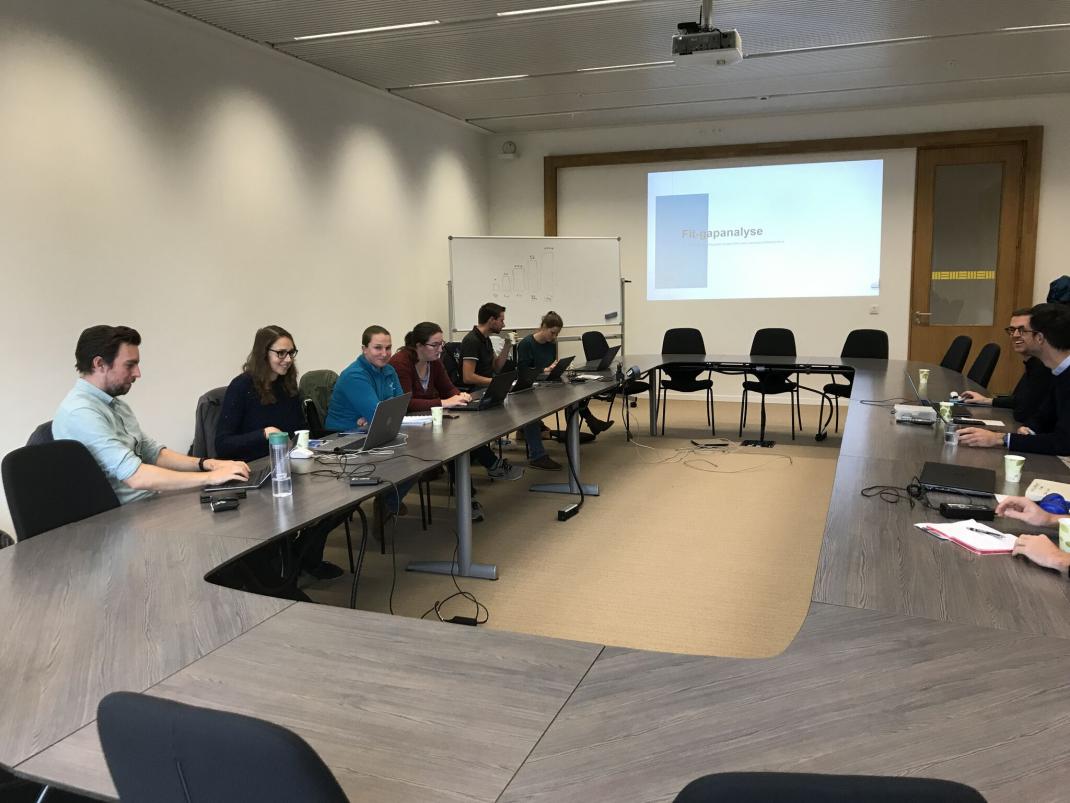Data charter for citizen science: a guide in the data landscape
“We are firmly convinced: within the field of citizen science, project initiators, participants and users benefit from open and interoperable data.” Ruben Capiau, business analyst at Digital Flanders, looks back with satisfaction at his presidency of the Working group Data Management of Scivil. The creation of a ‘Data charter for citizen science’ has gone smoothly, and this spring the charter will be launched. Moreover, the charter won’t just cover open data, but also aspects of data management and interoperability. Ruben Capiau guides us through the principles of the new ‘Data charter for citizen science’ that will be launched on April 13th.

Customised charter
Scivil has always been very aware of the high demand for input when it comes to open data and data management within citizen science. How did the knowledge centre find their way to you for becoming the president of their working group?
“Open data are indeed much more than a buzzword. Organisations and institutions are looking for clear guidelines and principles, that can guide them in the open data landscape. In mutual agreement between Scivil and Digital Flanders, I took the presidency for the Working group Data Management, mostly because Digital Flanders has the necessary knowledge and expertise on data standards, Linked Open Data, making government data findable using metadata platforms etc. You can have a look on the webpage of Digital Flanders (in Dutch). Globally, you can say that within the Working group it was our ambition to combine the existing solid, Flemish and European guidelines and practices regarding open data and apply them to the field of citizen science. So we wanted to combine, scale up and strengthen our expertise, that of the government, together with the expertise of citizens, the academic world and the private sector.”
For whom will the new data charter for citizen science be a useful tool?
“We mostly address all initiators and collaborators of citizen science projects. Those can be citizens, governments, scientific institutions, private organisations, or a combination of these. What makes something to be a citizen science project for us? It comes down to the active participation of citizens and volunteers during the entire scientific process. This means for example citizens that help defining a research question and methodologies, but also citizens who collect or process data based on scientific and reliable protocols and who communicate results.”
Without a doubt, there are various global open data principles that also apply to citizen science. On the other hand, citizen science is a specific scientific model through the strong participation of and interaction with citizens. Are unique principles desirable?
“That is exactly how we experience it. Initially, we started from existing guidelines and charters with the working group. Examples are the Open Data Charter of Smart Flanders, the 10 principles of citizen science of the European Citizen Science Association (ECSA) and the FAIR-datamanagement principles (Findable, Accessible, Interoperable and Reusable). We combined principles, split them up or reformulated them, we added additional guidelines and put the right emphasis regarding citizen science. We considered the results of surveys in our workshops, that supported the entire process. This way, we could already provide an answer to some of the questions on data management of citizen science projects.”
Open data are indeed much more than a buzzword. Organisations and institutions are looking for clear guidelines and principles, that can guide them in the open data landscape.
Five times guidance
On which aspects of data management does the charter expand?
“With the members of the working group, we defined five themes. First and foremost, we zoom in on Open attitude. Data are the fuel of our knowledge economy and of the 4th industrial revolution, and they show their value much more if they’re as open as possible. Openly offering data (through the right licences) and research results (through the right academic journals) is crucial. Next, Privacy and ethics are extremely important in citizen science. Forging solid agreements beforehand about the use of personal data and the data that will be collected, is evidence of a professional approach. A third theme is Data hygiene. Since the data collection and processing is in the hands of volunteers, the data quality deserves extra attention. A data management plan (DMP), for example, can help to streamline the handling of data. You should not consider it as an administrative burden, on the contrary, the plan creates value as it results in more qualitative data for the projects. The fourth theme is the use of Data standards and formats. Setting up information models and reusing data standards are two excellent starting points to get to (semantic) interoperable data and facilitate communication about your data with others. Machine readable, open formats and using persistent identifiers ensures technical interoperability. Finally, in our new ‘Datacharter for citizen science’ we pay special attention to Metadata, since there is no point in offering nicely structured data, if they cannot be found by interested parties because there are no metadata (the instruction label of the data).”
Added value
How was being the president of the Working group Data Management for you?
“For me, citizen science was relatively uncharted territory, although I had some affinity with academic research, thanks to my background as a bio-engineer. The trajectory of starting the project near the end of 2019, until finishing the charter in the spring of 2021 has been a very enriching experience. I quickly got help from Mieke Sterken, advisor at Scivil, for organising workshops, processing feedback, and writing and editing the charter. Lastly, but not least, we received valuable input from our working group members, who used their own experience to put the right emphasis.”
Do you expect that the charter will be consulted or adopted? Will we evolve to a situation where the organiser of a citizen science project will automatically consult the charter beforehand?
“The former is already happening today. Scivil is currently working on a roadmap for citizen science for local governments, together with SMIT-VUB and IDEA Consult, commissioned by the Flemish government. For this, the brand-new charter will serve as a starting point. The possibility to impose the charter on funded citizen science projects is being explored, or at least to highly recommend them at the start of new projects. No ‘rules for the sake of rules’, but from the firm belief that initiators, participants and users benefit from open and interoperable data. The added value of citizen science can increase exponentially through systematically complying with the principles that are listed in the new ‘Datacharter for citizen science’."

Werkgroep Datamanagement (vóór Covid-19)
Interview en tekst: Hilde Devoghel (Tales and Talks)